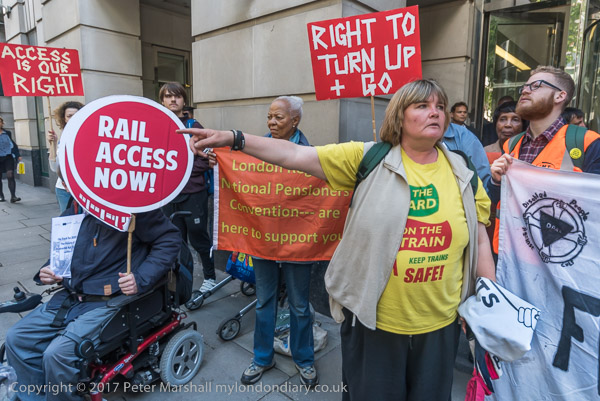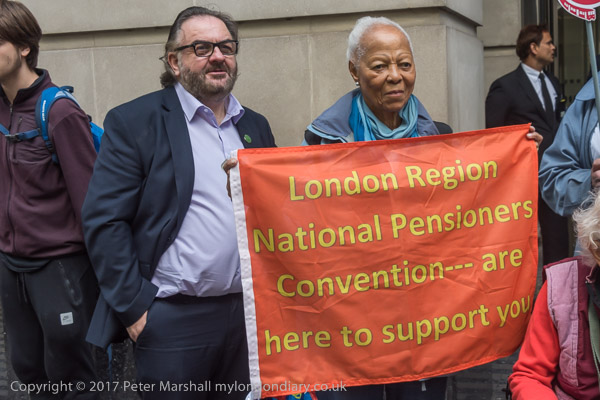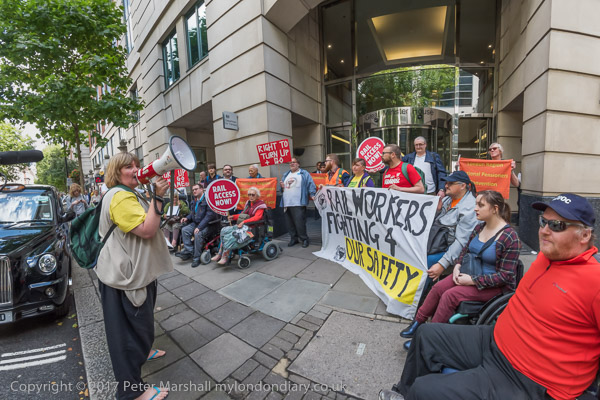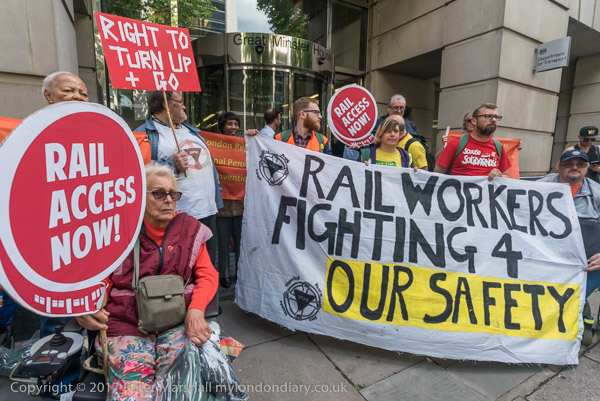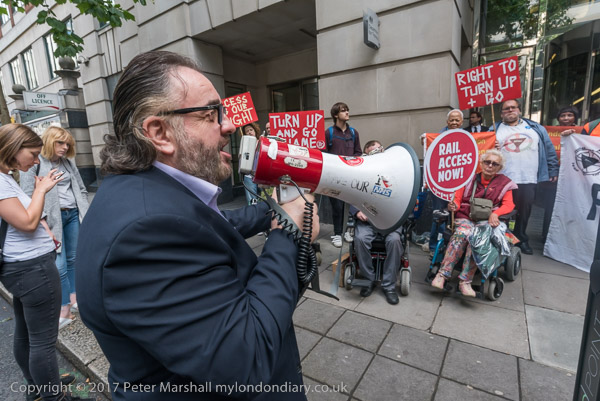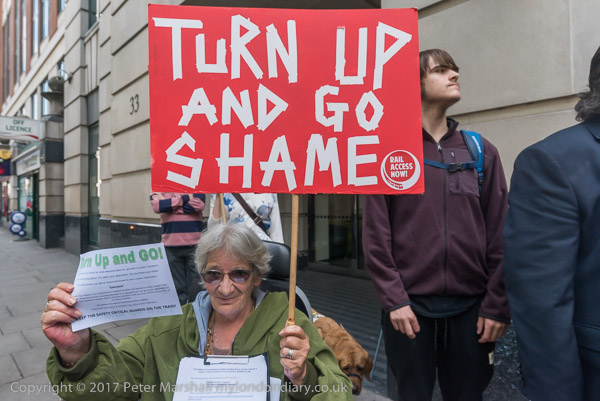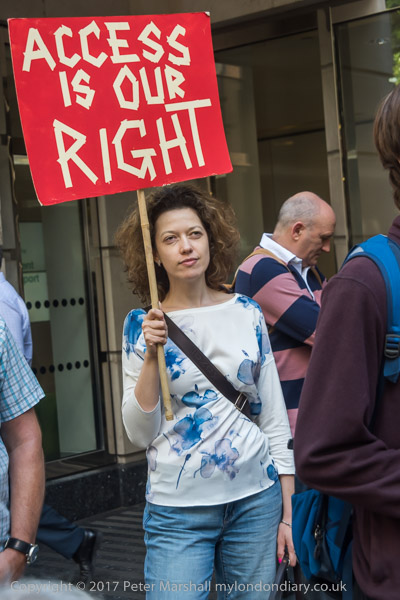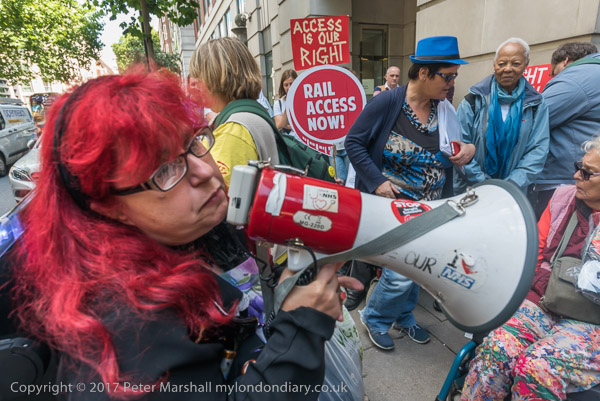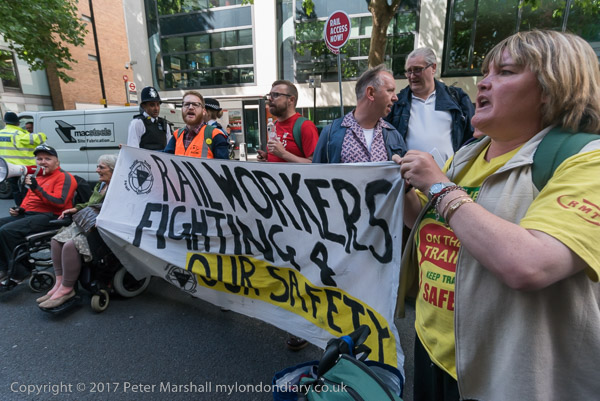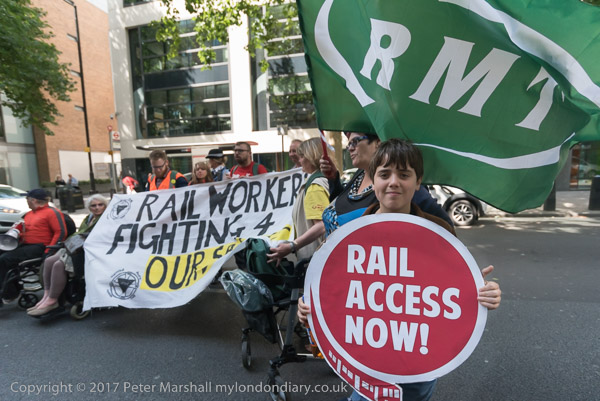Muslims, Our Railways & Little Venice: Twenty years ago I published this post on My London Dairy about my day taking pictures, but it isn’t easy to find. So here it is again with the usual minor corrections and a few pictures, with links to the others already on-line.
Muslims United Against Oppression – Marble Arch

Saturday 30th April 2005 was a busy day. I started at Marble Arch where a number of Muslim organisations were showing their unity in protesting against the anti-terrorism laws and the way the ‘war on terror‘ was used to detain prisoners at Guantanamo Bay and Bellmarsh, to carry out increased stop and searches on Muslims in the UK, and threaten them with extradition, and to label the liberation struggles in Palestine, Kashmir, Iraq and Chechnya as terrorism.

The ‘Muslims United Against Oppression’ march and rally was organised by ‘Stop Political Terror’, the ‘Islamic Human Rights Commission’, ‘Hizb ut-Tahrir Britain’, ‘Cage Prisoners’, the ‘Islamic Party Of Britain’, ‘Muslim Directory’ and other organisations, and representatives of many of these spoke at Marble Arch. There were also two former Guantanamo detainees who spoke, Martin Mubanga and Mozzam Begg, who read a moving poem.
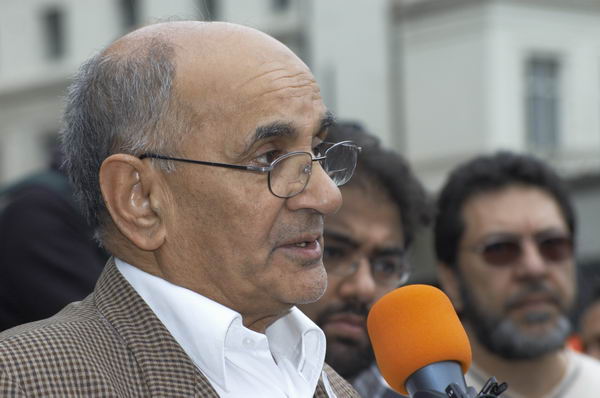
Ashfaq Ahmad spoke about the detention of his son, Babar Ahmad, who was born and brought up in south London. On December 2nd 2003, anti-terrorist police broke into his house in the early hours, and assaulted him brutally in front of his wife before taking him away. Six days later he was released without charge. He had over 50 injuries to his body, two potentially life-threatening, but despite this the Crown Prosecution Service decided there was insufficient evidence to prosecute any of the officers involved.

Babar Ahmad was again arrested on 5th August 2004 following an extradition request by the US government. In 2005 he was still in prison awaiting a final verdict on whether he will be sent to the USA, although a fair trial there seems unlikely.* The allegations against him appear to be that he emailed a US sailor on two dates (one was Babar’s wedding day, the other in the middle of his honeymoon on a remote island without internet access), that he had a brochure from the Empire State Building (true, his father had got it on a visit there in 1973) and that he had travelled on a false passport, despite the fact that his real one has the appropriate entry and exit stamps.

Unfortunately our extradition agreement with the USA apparently does not allow Britain to refuse requests on the grounds of evidence.

Having failed to treat Babar with any justice in this country following his arrest – almost certainly a case of mistaken identity that too many would lose face over to readily admit – it now looks as if we will hand him over to our American allies for further mistreatment.
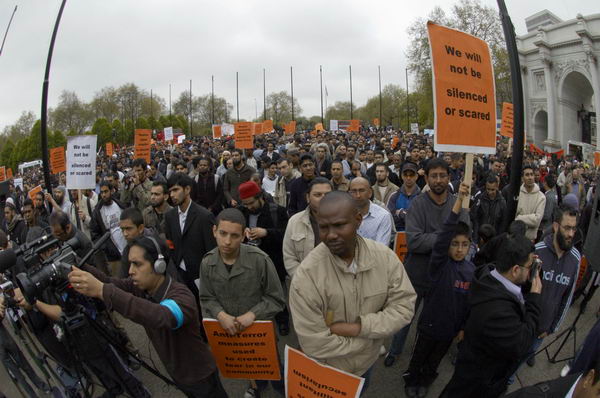
Around 5000 Muslims made there way from Marble Arch and along the Edgeware Road towards Paddington Green Police Station for a further rally.
* Babar Ahmed spent 8 years in a UK prison before eventually being sent the the USA for trial. Although there was huge pressure to try him in the UK the CPS decided there was “insufficient evidence to prosecute” him. In 2009 he was awarded £60,000 compensation for the “serious gratuitous prolonged unjustified violence” and “religious abuse” during his arrest; the four officers who were accused of this and dozens of other assaults on black and Asian men were tried but acquitted in 2011. After his extradition in 2012 he spent two years in solitary confinement in pre-trial detention in a Supermax prison. Eventually he came to a plea bargain which led to his release in July 2015.
RMT march to Renationalise the Railways – Bloomsbury
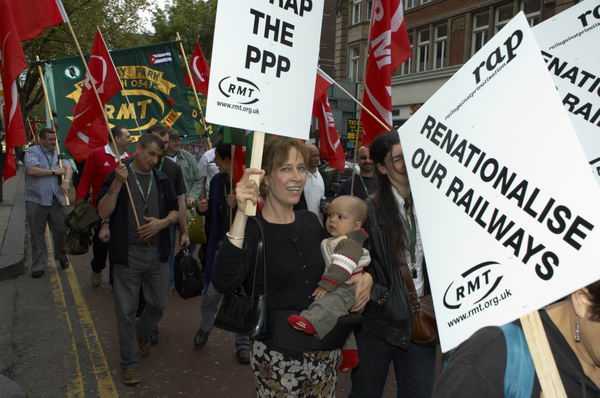
I made my way to the Charing Cross Road to meet the RMT march against rail privatisation, a two-week, 14-city national mobile demonstration from Glasgow to London to make the case for re-nationalising the rail network.
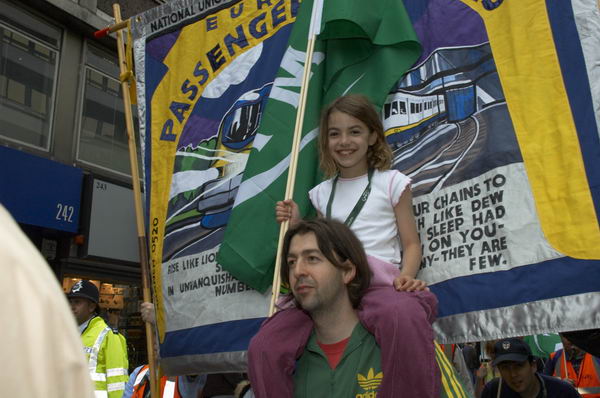
As someone who travels frequently by rail, I’m fully convinced of the need for some action. On my line to London, services are less frequent and less reliable and slower than when I moved here thirty years ago. The latest trick has been to write yet more ‘spare minutes’ into the timetables so that more trains will arrive on time. Journeys that a few years ago took 28 minutes are now timetabled for 34 minutes. [Now in 2025 this has increased to 37 minutes.]
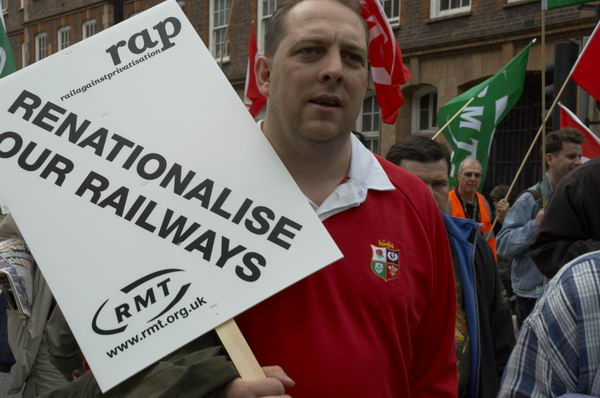
There certainly seem to be a great problem over signalling on the lines, with trains that should have a clear run on green with miles of clear track in front of them continually finding amber or double amber and occasionally red. Either systems are not working or there are not the signallers to work them.
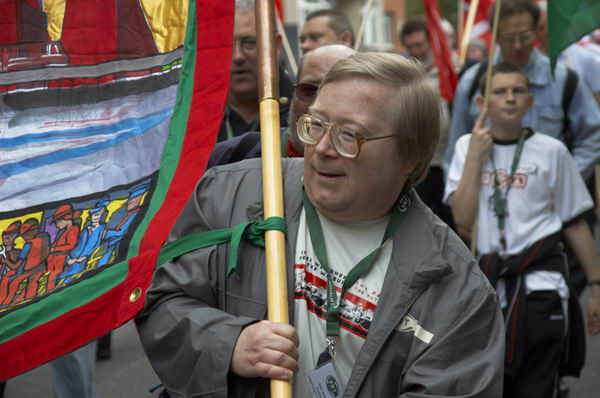
The whole fare structure is also a nonsense, far too complex for anyone to understand. None of the enquiry services ever seem to be able to tell you anything other than standard fares (if that) and journeys covering more than one operator are a nightmare. Try several online systems and you are likely to get several different answers as to fares and availability. As a first move back to a sensible system why not set up a national fare structure, with train operators paid for running trains from a central body?

It was a good-natured demonstration making a real point, but unfortunately not one any likely government wants to hear.
Canalways Calvacade – Litttle Venice

Finally I went off to Little Venice, where the Inland Waterways Association was having a three day Canalway Cavalcade celebrating the bicentenary of the Battle of Trafalgar. In 1805, canals were growing as the main form of inland transport, and it was the year two of the major civil engineering structures of our canals, the Pontcysyllte Aqueduct and the Blisworth Tunnel were completed.
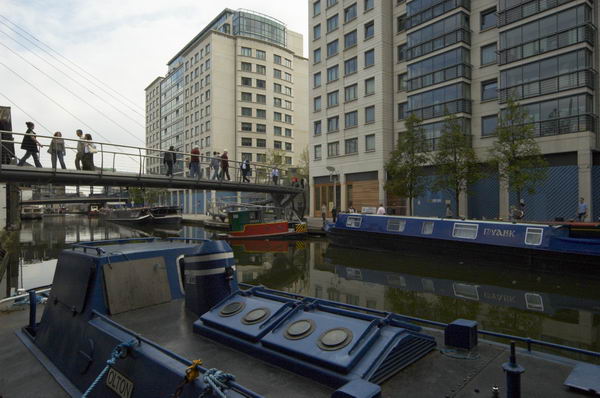
I’m not a great canal person, though I often cycle along the towpaths. But the first time I ever drove a narrowboat, I found myself in charge of 70 feet of steel hull through the dark narrow length of Blisworth, and later the same year also took the marginally overwide craft across Pontcysyllte, where there was considerable resistance to its movement through the narrow channel. Getting through some of the locks on the way there and back was harder, and we learnt some less conventional locking techniques, opening the upper gates for the water to force the marginally over-wide hull through, scraping its sides past the brickwork.
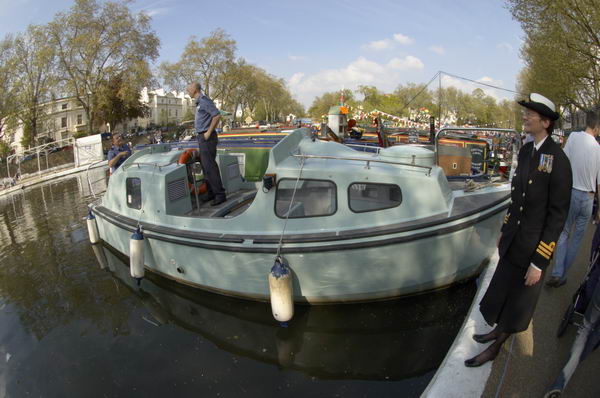
However I’d not come to see the boats, even though the navy were taking part, with one of our smaller ships, a crew of three and commander from the Royal Naval Reserve.
London Isn’t Venice, Yet! – Mutiny Arts, Little Venice
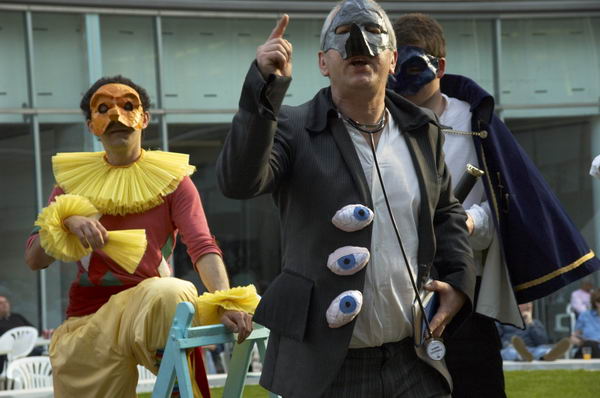
Mutiny Arts from Brixton were to perform an ecological drama, London Isn’t Venice, Yet!, warning of the dangers of global warming and rising sea levels.

The play went down well with the audience in the Sheldon Square ampitheatre, part of a new office development in Paddington.
Flickr – Facebook – My London Diary – Hull Photos – Lea Valley – Paris
London’s Industrial Heritage – London Photos
All photographs on this page are copyright © Peter Marshall.
Contact me to buy prints or licence to reproduce.
